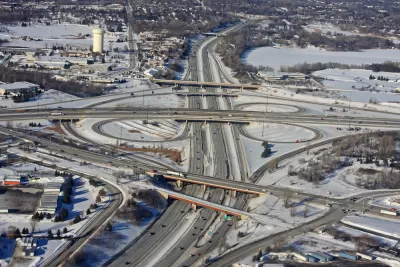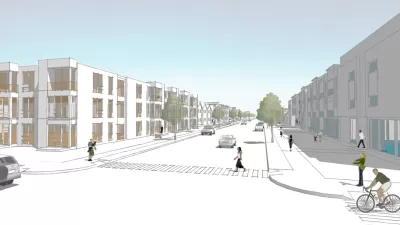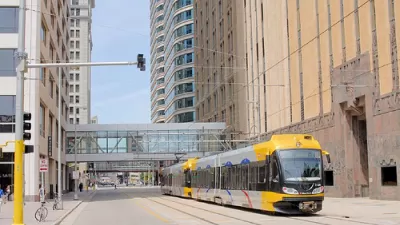Environmentalists have used the power of the legal system to protect the car-centric status quo of single-family zoning once again, overturning a landmark planning innovation in Minneapolis.

Environmentalists have used the power of the legal system to protect the car-centric status quo of single-family zoning once again.
A Hennepin County judge halted implementation of the Minneapolis 2040 Comprehensive Plan on June 15, according to an article published by Minnesota Public Radio.
The ruling by Judge Joseph Klein “made it clear the city had failed to address the environmental concerns raised by groups in court,” according to the article. “The city's expert, he wrote, failed to ‘specifically address, or purport to rebut to any degree of specificity, the many detailed assertions advanced by plaintiffs’ such as the effects of increased traffic and noise, loss of green space, effects on air and water quality, and stress on existing infrastructure,” according to the article.
The Minneapolis 2040 Comprehensive Plan famously was the one of the first citywide plans to entirely prohibit single-family zoning—for largely environmental reasons due to the emissions and land consumption effects of sprawling development resulting from exclusionary zoning. Protecting single-family zoning under the cover of environmental concerns is a familiar narrative around the country. The same judge tossed an environmental lawsuit against the plan in 2040, clearing the way for final adoption.
One of the groups behind the lawsuit, Smart Growth Minneapolis, would seem to misapply the smart growth term as it is commonly used to advocate for planning reforms that promote urban infill and mixed use density to enable fewer vehicle trips and alternative modes of transportation.
FULL STORY: Judge halts Minneapolis 2040 zoning plan amid environmental questions

Maui's Vacation Rental Debate Turns Ugly
Verbal attacks, misinformation campaigns and fistfights plague a high-stakes debate to convert thousands of vacation rentals into long-term housing.

Planetizen Federal Action Tracker
A weekly monitor of how Trump’s orders and actions are impacting planners and planning in America.

In Urban Planning, AI Prompting Could be the New Design Thinking
Creativity has long been key to great urban design. What if we see AI as our new creative partner?

Massachusetts Budget Helps Close MBTA Budget Gap
The budget signed by Gov. Maura Healey includes $470 million in MBTA funding for the next fiscal year.

Milwaukee Launches Vision Zero Plan
Seven years after the city signed its Complete Streets Policy, the city is doubling down on its efforts to eliminate traffic deaths.

Portland Raises Parking Fees to Pay for Street Maintenance
The city is struggling to bridge a massive budget gap at the Bureau of Transportation, which largely depleted its reserves during the Civd-19 pandemic.
Urban Design for Planners 1: Software Tools
This six-course series explores essential urban design concepts using open source software and equips planners with the tools they need to participate fully in the urban design process.
Planning for Universal Design
Learn the tools for implementing Universal Design in planning regulations.
Gallatin County Department of Planning & Community Development
Heyer Gruel & Associates PA
JM Goldson LLC
City of Camden Redevelopment Agency
City of Astoria
Transportation Research & Education Center (TREC) at Portland State University
Jefferson Parish Government
Camden Redevelopment Agency
City of Claremont





























